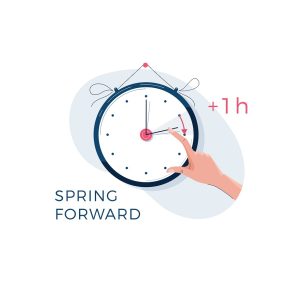
But your body doesn’t share the same enthusiasm as your brain or emotions. Losing an hour of sleep is tough on your body and mind and can boost the risk for some trouble.
Aside from the brain fog and irritability that can come with losing an hour of sleep, the time changes can lead to changes in appetite. More car accidents are typically reported in the days following the time change.
People with existing heart conditions may be at an even higher risk for a major cardiac event. Studies have shown that hospital admissions for atrial fibrillation (a-fib) go up in the week following the beginning of daylight savings. The same issue is not seen in the fall when it ends.
Other studies have found heart attacks go up by 24 percent on the Monday following the springtime change, compared to a 21 percent reduction in the days following the end of daylight savings. Studies have also shown a boost in ischemic strokes.
Daylight savings time, in a way, is in direct conflict with your body’s natural circadian rhythm. Your body doesn’t really care what the time the clock says it is. Instead, it is regulated to its own clock, and manipulating the cycle with arbitrary time changes can be dangerous.
It might be a little late for you to do anything about this year, but you can always get ready for next spring. You can help your body’s natural rhythm by:
Getting as much sunlight as possible every day
Going to bed a bit earlier in the week or two before the time change
Avoiding caffeine to combat daytime fatigue
Avoiding naps in a week or two following the time change